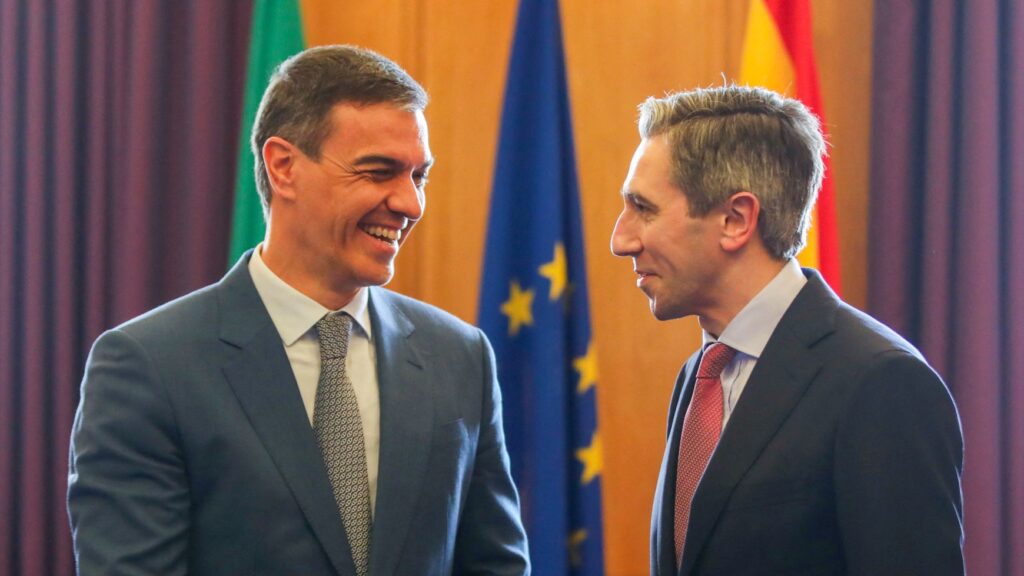More than 20 countries are convening in Bogota next week to declare “concrete measures against Israel’s violations of international law”, diplomats told Middle East Eye.
The “emergency summit” is due to be held on 15-16 July, co-hosted by the governments of Colombia and South Africa as co-chairs of The Hague Group, to coordinate diplomatic and legal action to counter what they describe as “a climate of impunity” enabled by Israel and its powerful allies.
The Hague Group is a bloc of currently eight states, launched on 31 January in the eponymous Dutch city with the stated goal of holding Israel accountable under international law.
“The Hague Group’s formation in January marked a turning point in the global response to exceptionalism and the broader erosion of international law,” Roland Lamola, South Africa’s minister of international relations and cooperation, told Middle East Eye.
“That same spirit will animate this Bogota conference, where the assembled states will send a clear message: no nation is above the law, and no crime will go unanswered,” he added.
New MEE newsletter: Jerusalem Dispatch
Sign up to get the latest insights and analysis on
Israel-Palestine, alongside Turkey Unpacked and other MEE newsletters
“Together, we will work to introduce concrete legal, diplomatic and economic measures that can urgently halt Israel’s destruction of the Palestinians.”
‘The assembled states will not only reaffirm our commitment to resist the genocide, but devise a series of specific measures to move from words to collective action’
– Mauricio Jaramillo Jassir, Colombia’s vice-minister of multilateral affairs
Israel’s war on Gaza, increasingly condemned by experts and governments as a genocide, has killed more than 57,000 Palestinians and displaced almost the entire population since October 2023. The onslaught has left the Palestinian enclave barely habitable and left two million people starving.
“The Palestinian genocide threatens our entire multilateral system,” Mauricio Jaramillo Jassir, Colombia’s vice-minister of multilateral affairs, told MEE.
“Colombia cannot be indifferent in the face of apartheid and ethnic cleansing.
“In Bogota, the assembled states will not only reaffirm our commitment to resist the genocide, but devise a series of specific measures to move from words to collective action.”
The founding members of the group included Bolivia, Colombia, Cuba, Honduras, Malaysia, Namibia, Senegal and South Africa.
States due to take part in the summit include Algeria, Bangladesh, Bolivia, Brazil, Chile, China, Cuba, Djibouti, Honduras, Indonesia, Ireland, Lebanon, Malaysia, Namibia, Nicaragua, Oman, Portugal, Spain, Qatar, Turkey, Saint Vincent and the Grenadines, Uruguay, and Palestine.
Officials attending include UN special rapporteur for Palestine Francesca Albanese; the head of the UN’s agency for Palestinian refugees Philippe Lazzarini; UN special rapporteur on the right to health, Tlaleng Mofokeng; the chair of the UN working group on discrimination against women and girls, Laura Nyirinkindi; and Andres Macias Tolosa, UN working group on mercenaries mandate holder.
Concrete steps
Members of The Hague Group have already taken major steps over the past 20 months to defend and enforce international law.

Holding Israel accountable: What is The Hague Group?
Read More »
South Africa, for example, brought a landmark case against Israel at the International Court of Justice for alleged violations of the Genocide Convention in Gaza.
Several states in the coalition later joined South Africa’s case at the ICJ, including Bolivia, Colombia and Namibia.
Additionally, Namibia and Malaysia blocked ships carrying arms to Israel from docking at their ports, while Colombia has cut diplomatic ties with the Israeli government.
Since these efforts have been taken independently, The Hague Group aims to coordinate action amongst its member states and supporters for a stronger impact.
According to the group’s coordinator Varsha Gandikota-Nellutla, the group has been formed in part as a reaction to the non-compliance of states with binding international legal obligations.
This is a reference to the pushback by a number of western states against the International Criminal Court’s arrest warrants for Israeli Prime Minister Benjamin Netanyahu and his former defence minister Yoav Gallant in November 2024, and Israel’s failure to comply with multiple orders by the ICJ to ensure the Genocide Convention is not violated in Gaza.

